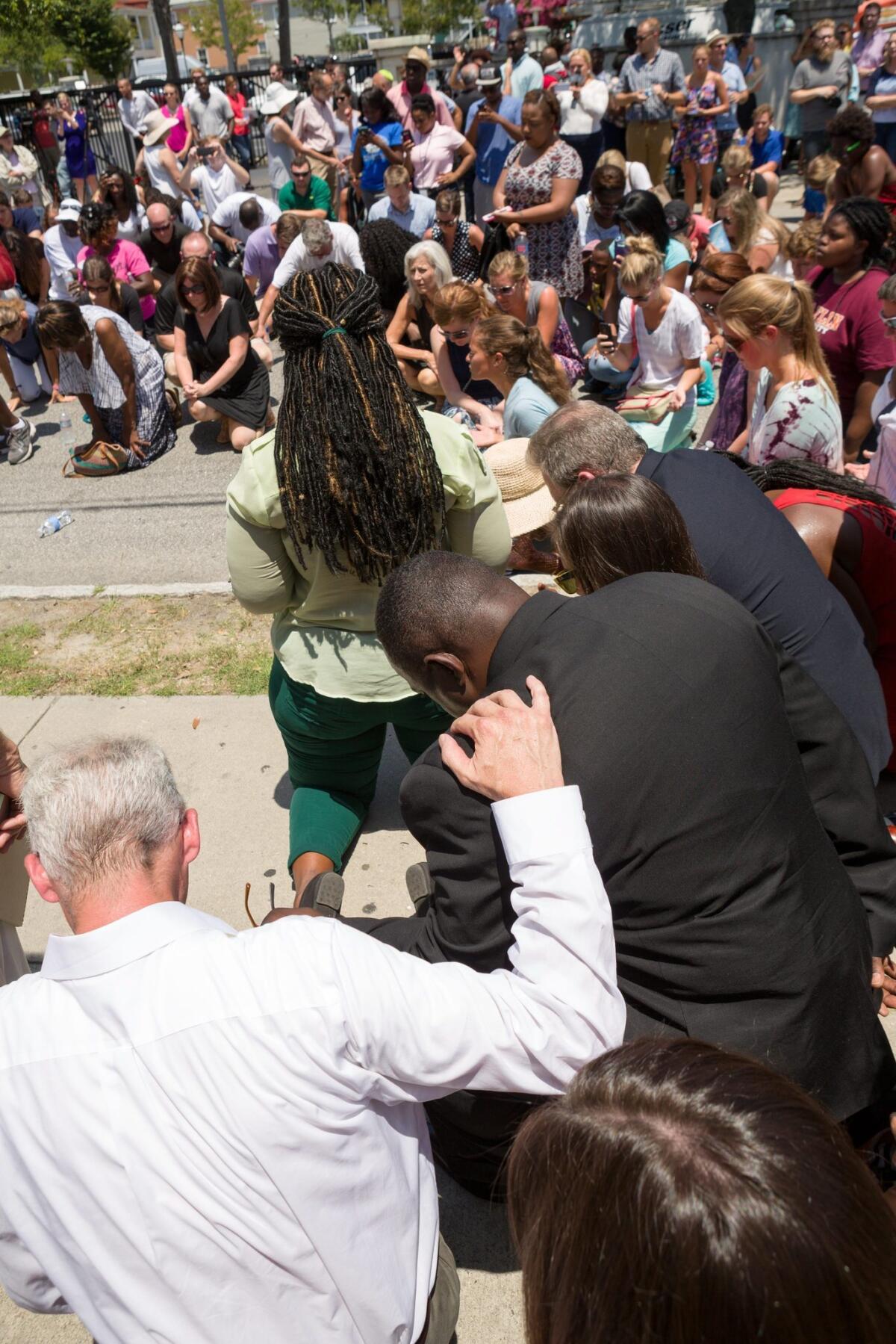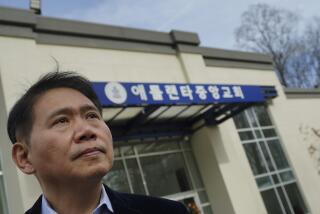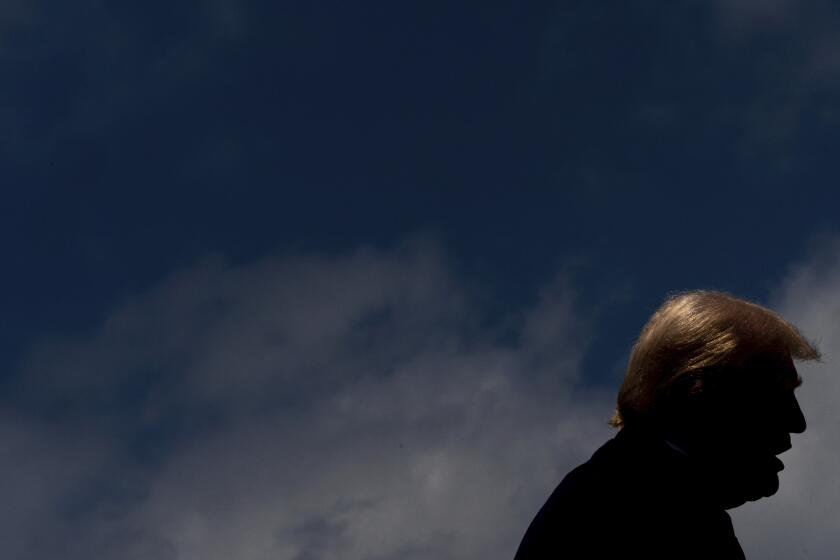Opinion: What the Charleston killings reveal about our national soul

Charleston residents bow in prayer during a vigil for the nine victims of a mass shooting in the Emanuel African Methodist Episcopalian Church in Charleston, S.C. Police arrested a lone gunman in what they have categorized a hate crime.
Joe Riley Jr., the mayor of Charleston, S.C., aptly described the slaughter of nine African American churchgoers in his city Wednesday night as “a most unspeakable and heartbreaking tragedy.” And it was all the more outrageous because of the likely motive: racism.
Without citing anything more than the obvious – the suspect is a young white man – the local police chief quickly deemed the incident a hate crime, which seems a reasonable conclusion to draw, especially in light of comments later attributed to the now-captured gunman, and photos of him wearing apartheid insignia.
That means the nine victims were killed in the midst of a prayer meeting purely because of the color of their skin.
We have lived in this nation with racism, unreasoned hatred and violence since our founding days. During the slavery era, when blacks were treated as chattel, churches provided an affirmation of humanity denied them by slave masters and white society. In fact, the Emanuel African Methodist Episcopal Church, where Wednesday’s atrocity occurred, is among the nation’s oldest black churches. Ironically, it was birthed in discrimination, by black parishioners who left a white-led Methodist Episcopal Church in a dispute over access to the church’s burial ground.
That racism was the likely catalyst for this crime, in that place, makes it all the more tragic. And it reflects an inescapable truth about our national past, and our present.
It can be problematic to draw a direct link from the slavery era to Wednesday’s killing, but the framework, and the arc, of our history is hard to deny. As the police investigated the crime scene and closed in on the suspected gunman, Dylann Storm Roof, the Confederate flag was flying on the grounds of the state capitol building 120 miles away. Then there’s the response by white supremacists.
President Obama, in his comments after the killings, spotlighted the other part of our national disgrace at play in the killings: easy access to guns.
“Once again, innocent people were killed in part because someone who wanted to inflict harm had no trouble getting their hands on a gun,” the president said. “At some point, we as a country will have to reckon with the fact that this type of mass violence does not happen in other advanced countries. It doesn’t happen in other places with this kind of frequency. And it is in our power to do something about it.”
RELATED: Charleston church shooting victims: Who they were
Yet we don’t.
The 2012 massacre of children at Sandy Hook Elementary School sparked shock and outrage, but not enough to compel elected officials to turn their backs on the gun lobby and enact significant gun controls. These nine slayings aren’t likely to prompt reforms, either. At some point, if they haven’t already, the gun crowd will offer the perverse blame-the-victim argument that if the nine victims had been armed, they might still be alive.
So what recourse remains? We can give voice to our full-throated outrage, but until society is ready to confront the weakness in its soul, nothing will change.
Our national self-image is America, the land of the free and the brave. But a clear-eyed look at the mirror shows something else. At times of these tragedies -- and there are way too many of them -- people lament that we are better than this. But we are not. We are this.
Follow Scott Martelle on Twitter @smartelle.
More to Read
A cure for the common opinion
Get thought-provoking perspectives with our weekly newsletter.
You may occasionally receive promotional content from the Los Angeles Times.











